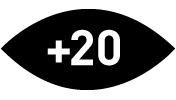

Perhaps the greatest rock star vanity project of all time, Purple Rain captures what was unique about a specific music scene in a specific city at a specific time while both showcasing its established star and announcing him as a superstar. Prince was one of the most fascinating forces in modern musical history. An insanely prolific songwriter, a unique singer, a virtuosic multi-instrumentalist, and a powerhouse producer, he could shred guitar as well as Eddie Van Halen, move about a stage as gracefully as Michael Jackson, create idiosyncratic yet catchy pop songs with the frequency of David Byrne, and continuously reinvent his persona as intriguingly as Madonna. He made himself the center of a vibrant and distinctively multicultural music scene in Minneapolis, Minnesota, first at the Pop/Funk/Rock nightclub First Avenue and then at his converted warehouse home/office/studio/soundstage/nightclub Paisley Park. (If you're ever in Minneapolis, I highly recommend a trip to Paisley Park, the first floor of which has been converted into a museum like Graceland. One of many striking things you'll discover there are all the gold records of albums of all genres by all kinds of amazing artists that were produced and/or recorded there.)
Like Sly Stone, Prince, in his early years, created bands that were more like extended families made up of men and women from different races, with different backgrounds and musical influences. His flamboyant, androgynous persona and his close collaboration with the lesbian members of his most famous band made him a queer icon as well, despite his strong religious beliefs around homosexuality, which were themselves somewhat fluid. In 1984, Prince released Purple Rain. The film became one of the biggest movies of the summer, and the record became one of the top 5 best-selling albums of the year (along with the Footloose soundtrack, Bruce Springsteen's Born in the U.S.A., Sports by Huey Lewis and the News, and Michael Jackson's Thriller from 1982, which was still topping the charts in '84!) This marked the peak of Prince's mainstream success and fundamentally changed what "mainstream" popular music looked and sounded like from that point forward.
The movie is a strange mix of clunky storytelling and inspired musical narrative, laughably amateurish acting and undeniable raw and truthful performance. No non-concert film features such breathtaking cinematic depictions of live musical performances. It's difficult for me, as someone who was so swept up in what music was becoming in 1984, to be fully objective about this picture. Is it, despite its flaws, a great film, or was it just a perfect encapsulation of a cultural moment that "ya had to be there" for? Watching it again and again, often with pretty cold eyes, I still think this is an incredible picture—a masterpiece when you consider it was a vanity project with a cast made up almost entirely of non-actors, directed by a novice fresh out of film school. Purple Rain may be flawed, but, for me, it stands with Saturday Night Fever as one of the few pop-music "scene movies" that functions as more than a mere document of an era and fully succeeds as an engaging and illuminating character study. But Saturday Night Fever starred John Travolta, not Barry Gibb. What other pictures that fall under this rock-star-playing-a-version-of-themselves sub-genre belong in a class with Purple Rain?—Alice's Restaurant? One Trick Pony? Cool as Ice? Glitter? I can't think of any that come close to what this film achieves.
Prince had been talking about making a movie about his life ever since the success of his album 1999, made with his then-formally-unnamed band, The Revolution. Prince apparently told his manager, Robert Cavallo, that he would not renew his contract unless Cavallo got him a deal with a major film studio to star in a movie about his life. Cavallo didn't have much luck selling the idea to the studios, and he ended up producing Purple Rain himself. He hired TV writer William Blinn (Roots, Fame, Brian's Song) to pen a screenplay based on the autobiographical concept Prince had been tinkering with for years. James Foley, who had just directed his debut feature, Reckless, turned down the offer to helm Purple Rain but recommended the editor of Reckless, former USC film student Albert Magnoli, who had made a name for himself with his short music-based film Jazz. Magnoli and Prince got on well, and the 30-year-old first-time director revised Blinn's screenplay considerably, making it less dark and more aligned with Prince's actual life story.
The lines between the real Prince and "The Kid," his character in Purple Rain, are blurry. Prince Rogers Nelson was the son of jazz singer Mattie Della and pianist/songwriter John Lewis Nelson (who often went by the stage name Prince Rogers until he gave that name to his son). Prince had a fraught relationship with both of his parents, who divorced when he was 10. He claimed in interviews that his father was physically abusive to him, and the theme of how patterns of abuse are passed down from one generation to the next is explored to some extent in the film. Prince was an insanely profuse songwriter and music producer, penning so many tunes he couldn't record and release them all, so he devised other bands and performers whom he'd produce and write for. He was romantically involved with many of the women who fronted these bands, and the basic narrative of Purple Rain follows the trajectory of his relationship with Denise Matthews, to whom Prince gave the stage name Vanity when he formed the female trio Vanity 6 of which she was the lead singer. Prince ghost-wrote the band's biggest hit, "Nasty Girl," in 1982, and he planned to have Vanity star in Purple Rain with him, essentially playing out a fictionalized telling of their relationship. But Vanity left the group and Prince's orbit to pursue a solo career, so Magnoli and Prince cast Apollonia Kotero as the film's love interest. This casting change led to many more script alterations and probably ended up hurting the film since so much of what's fascinating about Purple Rain, even if you know nothing about the people involved in it, are the ways in which it fictionalizes the real-life relationships and events of the folks we see on screen. What we see of Prince and Apollonia may be authentically the way the little purple guy lured women into his world, but it would probably be more exciting to see this played by Vanity, who was already on the other side of the experience.
Similarly, the tensions depicted between Prince and his bandmates certainly had their basis in reality, but the specifics are entirely fictional. One such plot point is the running storyline of Revolution members Wendy & Lisa writing the basic track that eventually becomes the song "Purple Rain" and being frustrated at The Kid's refusal to even listen to their demo. In reality, "Purple Rain" was a song Prince wrote on his own, and the recording was made during Wendy's first time playing on stage as a member of the band. The story of Wendy Melvoin joining the Revolution could have made for a fascinating movie narrative itself. Her girlfriend since childhood, keyboard player Lisa Coleman, was three years older and had joined Prince's backing band in 1980. Wendy, a budding guitarist, often hung around backstage and in the studio, sang some backup on a few album tracks, and eventually caught Prince's ear when he heard her noodling around on her guitar. As the story goes, when Prince's guitarist Dez Dickerson, who was planning to leave the increasingly sex-forward group for religious reasons, did not show up at soundcheck one night, Prince asked Melvoin to play Dickerson's guitar, and later that night, after checking with Coleman, invited Melvoin to join the band as Dickerson's replacement. Wedny's debut performance with the Revolution was a benefit concert at First Avenue on August 3, 1983. The recordings from this concert became the basic tracks for many of the key songs on Purple Rain—"Let's Go Crazy," "I Would Die 4 U," "Computer Blue," "Baby I'm a Star," and the title track. Melvoin was just 19 at the time these iconic tracks were recorded, and there's an amazing video of the performance of "Purple Rain" from this show on YouTube. If you’re a fan, it's pretty incredible to see the original 10+ minute performance of this song before all the editing and overdubbing. And it's wild to see young Wendy dropped into a group that, though she knew them all well, had been playing together as a tight unit for years.
The scenes in Purple Rain set at First Avenue are even more mesmerizing. Magnoli obviously knew how to shoot music, but how he, the musicians, and the extras—all inexperienced in the tedious process of filmmaking—are able to convey the energy and excitement of what it must have been like to be part of this scene is nothing short of a miracle. The club was apparently closed for 25 days of shooting. Magnoli and cinematographer Donald E. Thorin (Michael Mann's Thief, Rick Rosenthal's Bad Boys, Taylor Hackford's Against All Odds) make the club look like the most exciting place to be, with dancers on the catwalks, the multi-racial crowds grooving together on the dance floor, and VIPs making grand entrances and exits. All the bands are performing to playback but appear to be playing organically live and in the moment, with a unique style of flamboyant, cocky, and perfectly synchronized showmanship. Much of what sets these sequences apart from countless other depictions of live music in Hollywood movies is that the bands are playing to pre-recorded tracks that, in many cases, were recorded live in the very environment where the film is shot months later. And, just as in their actual live performances, these musicians all move in step with each other as they're playing their instruments, and the authentic audience members (not extras or professional dancers) reciprocate.
In addition to Prince and The Revolution and Apollonia 6, we get performances by Morris Day and The Time and Dickerson's post-Revolution band Dez Dickerson and the Modernaires. Prince's good friend Billy Sparks plays the fictional owner of First Avenue, 1999 backup singer, dancer, and songwriter Jill Jones plays a younger version of herself waiting tables, and comic actor and backup dancer Jerome Benton practically steals the movie as Day's sidekick Jerome. With the exception of Benton, none of these cast members will ever be claimed as great actors, but their presence adds a layer of extratextual realism.
The depiction of rivalries between the Prince and the other incredible performers in this scene and the way Sparks lambasts The Kid for using the club's stage to "work out his personal shit" draw us in. Clearly, there must have been intense competition between The Time and The Revolution, Dez Dickerson and his former bandmates, Prince and Wendy & Lisa, but the way all these performers are showcased in this movie, the feeling of communal unity and commitment to the music comes through just as strongly as the pressures and indignities. And, of course, watching Prince use the cinematic stage to "work out his personal shit" is ultimately why this movie is so powerful and engaging. He's as fascinating a screen presence as he was a figure in real life—a tiny man dressed to the nines, making the scene, peacocking around, and riding his customized purple CM400 Hondamatic like a little kid with a toy motorcycle. The way he chooses to depict himself is often laughable and frequently unflattering, yet we always get the sense that he thinks it is the height of cool. It's difficult to know if the filmmakers and those around him concurred or encouraged all this behavior because it rendered the character of The Kid far more complex and interesting. Regardless, everything we see of The Kid, even in the most wobbly acted, demonstrably misogynistic, or woefully underwritten scenes, feeds into the stage performances that set this movie on fire. Purple Rain is not a film where you slog through the contrived melodrama to get to the good stuff; this is an engrossing glimpse into the persona of a singular artist who was as conscious of the image he’d meticulously created for himself as he was a consummate performer who dedicated himself to perfection in his music and in the way that music was presented and showcased. All this makes Purple Rain an unforgettable picture.
Perhaps the greatest Rock Star vanity project of all time, Purple Rain captures what was unique about a specific music scene in a specific city at a specific time while both showcasing and announcing its star, Prince, at the peak of his mainstream success. No non-concert film features such breathtaking depictions of musical performances.










